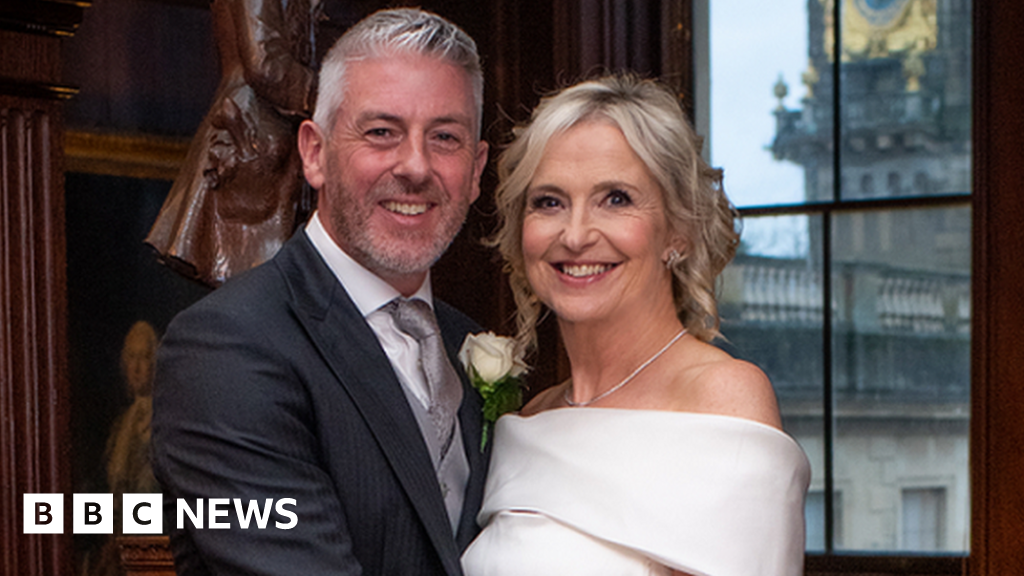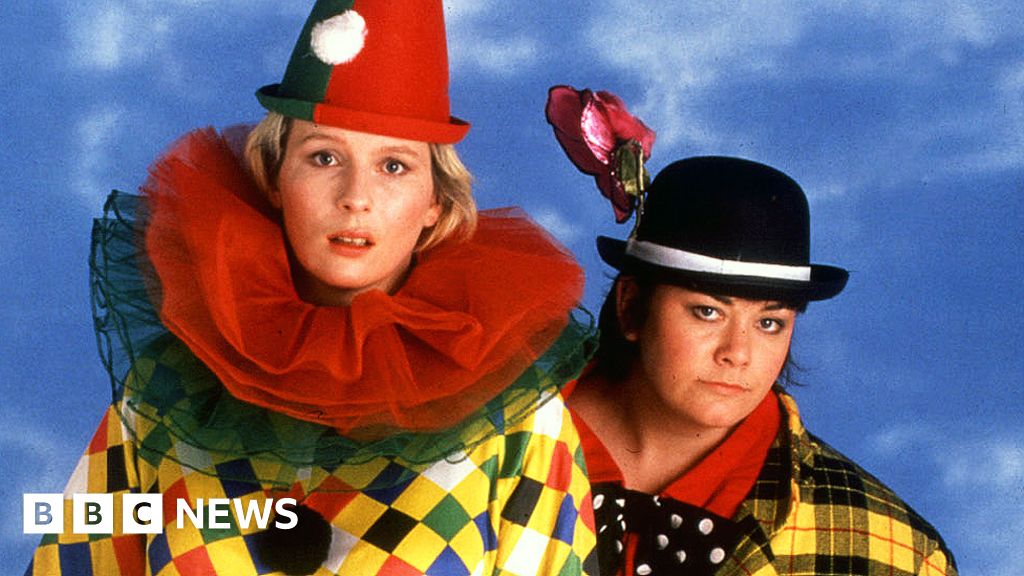After months of heated rhetoric and collateral damage, the Writers Guild of America and major Hollywood studios reached a tentative deal on Sunday, ending a 146-day strike that shuttered production on all your favorite scripted shows and films.
"We have reached a tentative agreement,” the WGA negotiating committee said in a statement. While no specifics on the deal have been revealed, the guild called the new pact “exceptional,” adding that it grants “meaningful gains and protections for writers in every sector of the membership.”
Even President Joe Biden, who loves a good Netflix and chill night, applauded the decision: "There simply is no substitute for employers and employees coming together to negotiate in good faith toward an agreement that makes a business stronger and secures the pay, benefits, and dignity that workers deserve," he said in a statement on Monday. "I urge all employers to remember that all workers — including writers, actors, and autoworkers — deserve a fair share of the value their labor helped create."
To be clear, the WGA noted that “no one is to return to work until specifically authorized to by the guild. We are still on strike until then. But we are, as of today, suspending WGA picketing.”
What exactly does it all mean for your favorite shows — and when, exactly, can you expect them to return? Here’s what you need to know.
How did we get here?
The WGA strike began on May 2 after union negotiators, on behalf of the guild’s 11,500 members, failed to reach agreement by the May 1 deadline with the Alliance of Motion Picture and Television Producers (AMPTP), which negotiates contracts for all the major studios, streaming services and broadcast networks. Traditionally, a new deal is negotiated every three years.
As stressed in its list of demands, the WGA sought higher residual payments and pay rates for writers working on streaming shows (the guidelines hadn’t evolved since the advent of streaming), as well as stricter protections surrounding the use of artificial intelligence. With the rise of popular streaming shows, which traditionally have shorter seasons and fewer writers on staff, the guild said it was harder for those writers to earn a sustainable living.
The strike was ultimately one of the longest in Hollywood history, outlasting the 100 days of the union’s 2007-08 strike, and compounded by an equally impactful strike by the actors union SAG-AFTRA, which has been going since July 14 and similarly seeks higher pay rates and AI protections.
Does it mean the coast is clear for Drew Barrymore and other daytime hosts?
Expect the first shows back to be daytime talkers — like the syndicated The Drew Barrymore Show, The Jennifer Hudson Show and The Kelly Clarkson Show and CBS’s The Talk. They should begin airing again in early October, or as soon as the new contract is ratified by the WGA, “which is expected within two weeks.” according to Deadline.
Those shows were prepared to launch last month without their WGA-member writers in order fulfill syndication deals. However, they were still considered “struck shows,” as noted by The Wrap. Unlike ABC’s The View, which continued production despite heavy criticism from the WGA, those aforementioned shows decided to postpone their news seasons.
Notably, Barrymore — who planned to return on Sept. 18, but retracted her decision amid backlash by the guild — endured punishing backlash.
Shows that don’t employ WGA staffers include Sherri (who paused filming due to a COVID diagnosis, but is set to return this week), Karamo, Tamron Hall and Live With Kelly and Ryan — all of which were able to continue production despite the strike.
Will Mayim be back on Jeopardy!? What about DWTS and other reality shows?
Popular scripted shows were stalled because of the dual strikes, which prompted networks to fill their fall schedules with reruns, sports and unscripted programming, including game shows and reality programs.
But because unscripted shows typically have different taping schedules from live television and scripted series, most were already done filming by the time the strike was in full swing. That includes ABC’s Celebrity Family Feud, $100,000 Pyramid and Press Your Luck as well as the network’s The Bachelorette and NBC’s America’s Got Talent (which employed no union writers and continued its live shows in August as planned).
Meanwhile, CBS’ Big Brother is non-union and was unaffected. The Price Is Right wasn’t covered under the guild contract in 2007.
Ken Jennings continued to host Jeopardy! despite the WGA strike. (Christopher Willard/ABC via Getty Images)
ABC managed to twirl out of trouble with Dancing With the Stars. Before this weekend, producers confirmed they were planning to postpone Tuesday’s season premiere after contestants began backing out and co-host Cheryl Burke stated her opposition to beginning the new season while Hollywood was on strike. Now, per ABC, “DWTS will premiere as originally scheduled.”
Shows like Jeopardy! continued filming, with Ken Jennings as the sole host because Mayim Bialik decided to step aside until the dual strikes were settled. Jennings responded to critics of his decision by saying he decided to follow the same script as his iconic predecessor, Alex Trebek, who hosted the show through the 2007 strike.
As showrunner Michael Davies explained in August on the Inside Jeopardy! podcast, the show's producers compensated by using “a combination of material that our WGA writers wrote before the strike” and “material that has been re-deployed from multiple, multiple seasons of the show.” (Meaning, new episodes were made up of some new material and recycled answers.) Still, the show even had trouble recruiting contestants, who were reluctant to cross any picket lines.
Ultimately, most unscripted shows continued unabated during the strike and will resume their normal production schedules, and airdates, by mid-October.
What about Colbert, the Jimmys and the rest of the late-night crew?
Most late-night shows shut down in April due to the WGA strike — including ABC’s Jimmy Kimmel Live!, CBS’s Late Show With Stephen Colbert, and NBC’s Tonight Show Starring Jimmy Fallon and Late Night With Seth Meyers. Comedy Central’s The Daily Show, as well as HBO’s Real Time With Bill Maher and Last Week Tonight With John Oliver also went dark.
Many of them will return as early as October, according to Variety, getting the bands back together as soon as the tentative deal is authorized.
Meanwhile, non-writing executive producers, digital teams, production managers and bookers continued to work during the strike, with some continuing to book talent for future episodes with the knowledge that they’d eventually be back in production.
While the shows are set to ramp up, there is one caveat: as long as actors remain on strike, they are forbidden from talking about past and future acting projects, so the late-night hosts might need to get creative with their interviews and bits.
Bill Maher came under fire for planning to resume his show while the WGA strike continued. (Randy Holmes via Getty Images)
Cable shows like The Daily Show and Last Week Tonight With John Oliver may take longer to return; The Daily Show is still on the hunt for its permanent host after the departure of Trevor Noah and Oliver’s highly researched show format takes longer to prepare than others.
HBO's Real Time with Bill Maher could return as early as this Friday. The host was prepared to return last week but, like Barrymore, Maher retracted his decision as he came under harsh criticism.
Live from New York... eventually
Scripted shows and variety shows — like NBC’s Saturday Night Live — will return to the writers room as soon as the agreement is resolved, though select filming may have to wait until SAG-AFTRA settles.
SNL's director Liz Patrick confirmed to The Wrap that the show's cast members operate under the Network Television Code, which allows them to perform despite the SAG-AFTRA strike. For that reason, SNL may be up and running sooner than other scripted shows.
“We are the type of show that literally, if we know by Monday or Tuesday — or, hopefully Monday, just to give to the writers Tuesday — we just turn the lights on and we go,” she said. “We’ll see what happens, but I think we’re a light switch production.”
Colin Jost and Michael Che anchor and write "Weekend Update" for Saturday Night Live. (Will Heath/NBC via Getty Images)
A number of scripted TV and streaming series were canceled amid the dual strikes while several returning shows and film shoots were saw their premieres delayed to 2024 — including Season 2 of Amazon's The Rings of Power, which was nearly done with production before the strike began, similar to Season 2 of HBO’s House of the Dragon.
Meanwhile, Craig Mazin, the writer and producer of HBO’s The Last of Us, announced on Threads that he is “excited to get back to work” on the second season as soon as possible.
While scripted shows may commence the writing process, they remain stuck until the actors settle. However, with the writers finding a path forward, the industry is hopeful for a resolution before Halloween.
But could there be a last-minute plot twist?
For example, Mike Sime, owner of Visual Alchemy, whose team provides audio and tech equipment for nearly all TV episodic and film sets in New York City, tells Yahoo Entertainment that he’s optimistic the SAG-AFTRA strike will end soon, noting that the union will likely “use the WGA agreement, if approved, as a template.”
However, he fears another issue could arise. As a leading member of IATSE, the union for electricians, makeup artists and other behind-the-scenes tech engineers, Sime says he had to furlough his entire 15-member staff due to financial loss prompted by the strikes (which, he says, has been an under-reported issue). He believes IATSE could soon be demanding negotiations of their own.
“I think there’s a big fear that [tech] crews will be so tired and broke from these strikes that they’ll take any new contract when this one is up, and forget all the asks from last time that were bypassed and left on the table for various reasons,” he explains.
This could lead to more production shutdowns, he says, since TV and film sets rely heavily on unionized tech crews. “The situation,” he says bluntly, “sucks.”

 Movie
Movie 7 months ago
192
7 months ago
192 


![Presidents Day Weekend Car Sales [2021 Edition] Presidents Day Weekend Car Sales [2021 Edition]](https://www.findthebestcarprice.com/wp-content/uploads/Presidents-Day-Weekend-car-sales.jpg)



 English (United States)
English (United States)